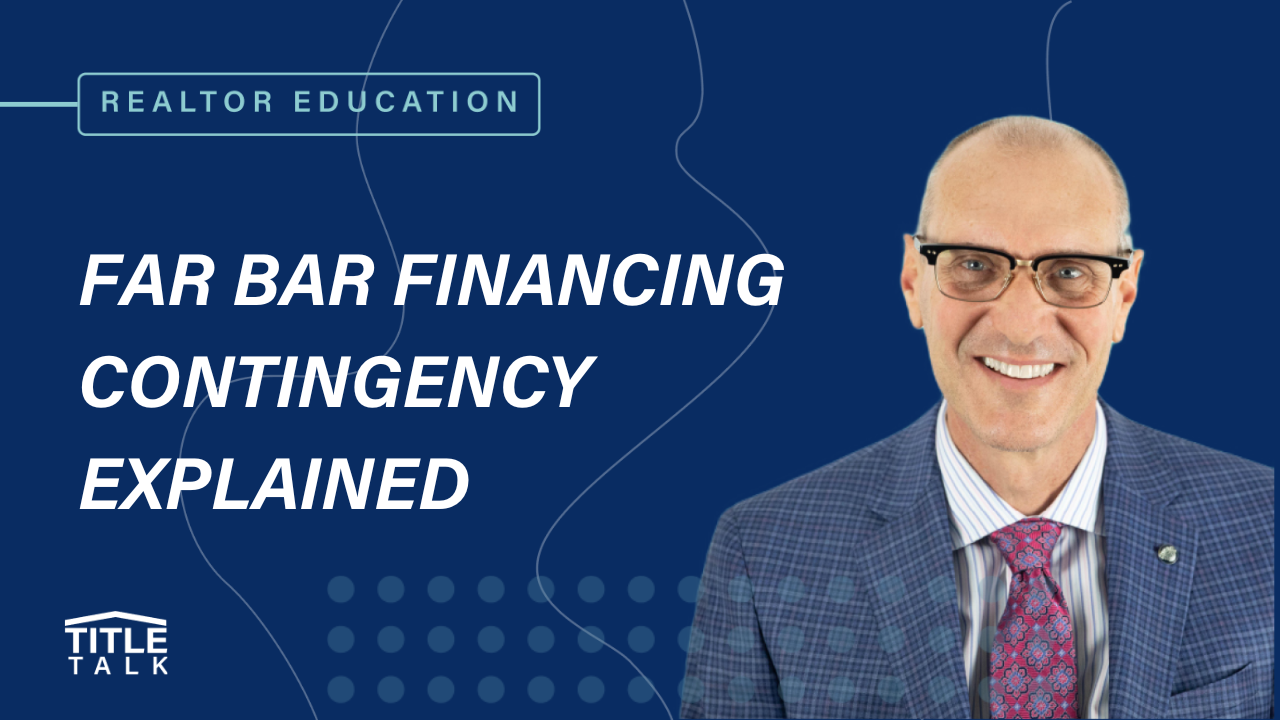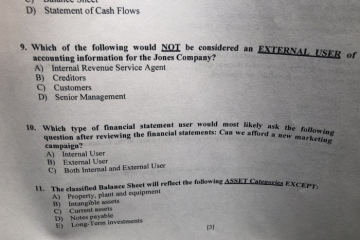When financing contingency expires, the buyer is bound to purchase the property or lose their deposit. This means the buyer must secure the necessary funds or risk losing the deal.
The financing contingency is a crucial aspect of real estate contracts, giving buyers a specific timeframe to secure a mortgage. Once this period expires, the buyer is required to proceed with the purchase using their own funds, whether through cash or alternative financing.
Failing to do so could lead to the seller retaining the deposit, and in severe cases, facing legal repercussions. It’s essential for both parties involved in the transaction to be aware of the implications and deadlines associated with the financing contingency to avoid any potential complications. Understanding the repercussions of this expiration is vital for a smooth and successful real estate transaction.

Credit: www.rmaaresources.com
Implications Of Expired Financing Contingency
When purchasing a property, the financing contingency is a crucial aspect that protects both the buyer and the seller. It allows the buyer to back out of the deal without any penalty if they are unable to secure financing. However, if the financing contingency expires without the buyer obtaining the necessary funds, it can have significant implications for both parties involved. Let’s take a closer look at the impact on the buyer and the seller.
Impact On The Buyer
Once the financing contingency expires, the buyer is now obligated to proceed with the purchase, regardless of their ability to secure financing. This means that if the buyer is unable to obtain a loan, they may potentially lose their deposit and face legal consequences if they fail to complete the purchase. It is essential for the buyer to have a solid financial plan in place and carefully consider their ability to secure financing before the expiration of the contingency.
Some possible implications for the buyer include:
- Risk of losing deposit: If the buyer cannot obtain financing, they may forfeit their earnest money deposit, which is paid upfront to show commitment to the purchase.
- Potential legal consequences: Failing to fulfill the purchase agreement can lead to legal action by the seller, seeking damages or specific performance.
- Difficulty finding alternative financing: Expired financing contingency may negatively impact the buyer’s ability to secure financing from other lenders, making it harder for them to find an alternative solution.
Impact On The Seller
When the financing contingency expires, the seller has the assurance that the buyer is committed to the purchase and cannot back out due to financing reasons. However, if the buyer fails to secure a loan, the implications for the seller can be challenging. Here are some potential impacts on the seller:
- Delayed sale: If the buyer cannot secure financing, the sale may be delayed or even fall through entirely, forcing the seller to relist the property and start the selling process again.
- Opportunity cost: If the financing contingency expires and the buyer fails to secure a loan, the seller may have lost potential opportunities with other interested buyers during the contingency period.
- Financial implications: If the seller has already made plans based on the sale, such as purchasing a new property, an expired financing contingency can cause financial strain and disrupt their plans.
Both the buyer and the seller should carefully consider the implications of an expired financing contingency and ensure they are well-prepared to handle the risks involved. It is essential for buyers to thoroughly understand their financial situation and explore financing options before the expiration of the contingency, while sellers should be prepared for potential delays or disappointments if the buyer fails to secure a loan.
Options For The Buyer
When the financing contingency expires, it can be a stressful time for the buyer. The expiration means they are obligated to proceed with the purchase regardless of whether they secure financing or not. However, there are options available to the buyer in this situation. Let’s explore the possible options for the buyer when the financing contingency expires.
Securing Alternative Financing
If the financing contingency expires, the buyer can explore the option of securing alternative financing from a different lender. This involves researching and comparing different loan options from various financial institutions. It’s important to act swiftly to secure alternative financing to avoid any potential issues with the purchase process.
Negotiating An Extension
Another option for the buyer is to negotiate an extension with the seller. This provides the buyer with additional time to secure financing without breaching the terms of the purchase contract. Negotiating an extension requires open communication and cooperation between the buyer and the seller to reach a mutual agreement that benefits both parties.
Options For The Seller
When the financing contingency expires, sellers find themselves at a crucial point in the home selling process. They have several options to consider, each with its own implications and considerations.
Proceeding With The Sale
One option for the seller is to proceed with the sale of the property even without the financing contingency in place. This decision entails a certain level of risk, as the buyer’s ability to secure a loan is no longer guaranteed. However, if the seller is confident in the buyer’s financial position and is eager to move forward with the transaction, this may be a viable path to take.
Considering Other Offers
If the financing contingency expires without the buyer securing a loan, the seller may opt to consider other offers. This option allows the seller to explore alternative buyers who may present more secure financing arrangements. While this can prolong the selling process, it provides an opportunity for the seller to assess new offers and potentially secure a stronger deal.
Legal Ramifications
One of the primary legal ramifications that arise when a financing contingency expires is a potential breach of contract. A breach of contract occurs when one party involved in the real estate transaction fails to perform their obligations as stipulated in the contract. In this scenario, if the buyer’s financing falls through and they are unable to secure a loan, they may not be able to fulfill their obligation to purchase the property.
When a buyer is unable to secure financing and the financing contingency expires, it can result in the rescission of the sale. Rescission refers to the cancellation or termination of a contract. If the buyer cannot meet their financial obligations, the seller has the right to rescind the sale and potentially seek damages for any costs incurred as a result of the failed transaction.
When a financing contingency expires and the buyer cannot secure a loan, there can be significant financial consequences. The buyer may lose any earnest money deposits they put down on the property, as well as any expenses related to inspections, appraisals, and other due diligence performed during the transaction process. Additionally, the seller may suffer financial losses due to the time and effort invested in the failed sale.
Another legal ramification that can result from the expiration of a financing contingency is the impact on market perception. If a sale falls through due to financing issues, it may raise concerns among other potential buyers and lenders in the market. This could make it more challenging for the seller to find another buyer or secure financing for future transactions.
| Legal Ramifications of Expired Financing Contingency |
|---|
| Breach of Contract |
| Rescission of the Sale |
| Monetary Loss |
| Market Perception |
It is important for both buyers and sellers to understand the legal ramifications that can arise when a financing contingency expires. Buyers should ensure they have a solid plan for securing financing before entering into a contract, and sellers should be aware of their rights and options in the event of a failed transaction. By being knowledgeable about these legal considerations, both parties can navigate the real estate process with confidence.
Navigating The Process
Once the financing contingency expires, the buyer must proceed with the purchase, even without secure funding. This could lead to potential legal and financial challenges that must be navigated carefully. It’s crucial for buyers to stay informed and proactive throughout the process.
Seeking Legal Advice
Legal consultation is crucial for understanding your rights and obligations after a financing contingency expires.
Communication With The Other Party
Open and clear communication with the other party ensures smooth cooperation during this phase.
When the financing contingency expires, it’s essential to navigate the process effectively. Seeking legal advice can provide valuable insights into your next steps regarding the property purchase. Legal consultation can help you grasp your rights and responsibilities.
Seeking Legal Advice
Legal consultation is crucial for understanding your rights and obligations after a financing contingency expires.
Communication With The Other Party
Open and clear communication with the other party ensures smooth cooperation during this phase.
Protecting Your Interests
Documenting your conversations and agreements helps track negotiations clearly.
Ensure all communications are in writing to avoid misunderstandings.
Save all emails, messages, and documents related to the real estate transaction.
Review your contract thoroughly to know your rights and obligations.
Seek legal advice if uncertain about any clauses in the agreement.
Follow the timelines and deadlines stipulated in the contract.
Learning From The Experience
When the financing contingency expires, it can bring about significant implications in a real estate transaction. It is vital for both buyers and sellers to understand the consequences of such an occurrence and learn from the experience. In this section, we will delve into valuable lessons that can be derived from dealing with an expired financing contingency.
Lessons For Future Transactions
Importance Of Due Diligence
One of the crucial lessons to be learned from an expired financing contingency is the paramount importance of conducting thorough due diligence. Before entering a real estate transaction, buyers must diligently assess their financial capabilities, seeking pre-approval from their chosen lender. By doing so, they can ascertain the exact loan amount they qualify for, ensuring a smoother financing process.
Moreover, it is vital for buyers to carry out comprehensive research on the property, including its market value, potential issues, and any outstanding liens or encumbrances. This step assists in avoiding unforeseen obstacles that may arise later in the process, leading to potential financing issues.
- Secure pre-approval: Obtain pre-approval from a lender to determine the loan amount you qualify for. Lesson 2
- Thorough property research: Conduct extensive due diligence on the property, including its market value, potential issues, and existing liens. Lesson 3
- Alternative financing options: Explore alternative financing options to mitigate risks associated with an expired contingency.

Credit: newpathtitle.com

Credit: www.mashvisor.com
Frequently Asked Questions For What Happens When Financing Contingency Expires
When Should The Financing Contingency Be Set To Expire?
The financing contingency should be set to expire within a specific timeframe agreed upon in the purchase contract.
What Happens If You Don’t Remove A Contingency?
Not removing a contingency could lead to potential risks and uncertainties in a transaction. It may result in delays, disapproval from lenders or investors, and potential breach of contract. It is crucial to address and remove contingencies to ensure a smooth and successful transaction.
What Happens If You Waive Financing Contingency?
If you waive financing contingency, you commit to buying even if loan is denied. This has financial risk.
What Happens If A Buyer Misses A Contingency Deadline?
If a buyer misses a contingency deadline, the seller may have the right to cancel the contract.
What Happens When The Financing Contingency Expires?
When the financing contingency expires, buyers may lose protection and risk losing their earnest money deposit.
Conclusion
As the financing contingency expires, buyers and sellers enter a critical phase of the home buying process. This marks the turning point where the buyer’s ability to secure financing is put to the test. Without the safety net of a financing contingency, buyers may need to explore alternative financing options or risk losing the property.
Sellers, on the other hand, can breathe a sigh of relief as they move closer to a successful sale. Understanding the implications of an expired financing contingency is crucial for both parties involved. It is important to work closely with your real estate agent and lender to navigate this phase smoothly and make informed decisions.


